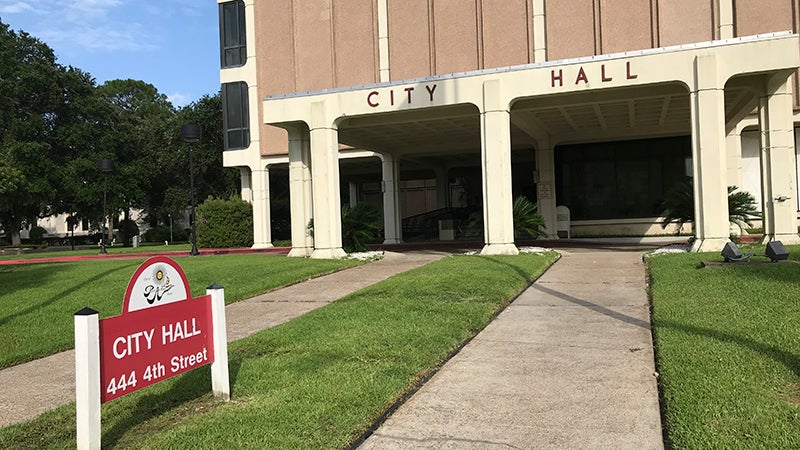Analysis of Port Arthur income, sales tax revenues examine pandemic’s city impact
Published 12:17 am Tuesday, July 14, 2020
|
Getting your Trinity Audio player ready...
|
As municipalities deal with the economic impact of the coronavirus pandemic, Port Arthur has offered a healthy monthly report on its 2019-20 budget.
The city’s general fund revenues totaled $63.6 million on May 31, which is above the estimate by $2.9 million. According to the monthly report, property taxes, the majority of which were due Jan. 31, are above budget by 12 percent, and industrial tax revenue is $30.9 million.
The total operating expenditures, not counting those transferred through May, were $38,553,325 for the fiscal year-to-date, more than $4.3 million below budget. The estimated ending balance for the general fund is $24.7 million, but for the year-to-date through May, it actually totaled $47,058,747.
The monthly report was presented to the Port Arthur City Council on July 7.
Port Arthur is also receiving a state sales tax payment of $1,311,914.41 from Texas Comptroller Glenn Hegar this month. The allocations are based on sales made in May by businesses that report tax monthly.
“For the year to date, we’re in good shape as far as sales tax goes,” said Kandy Daniel, Port Arthur’s interim finance director. “We watch it month to month, and so far so good. We had budgeted very conservatively. We always try to do that. This little downturn is not hurting.”
Port Arthur has received $9,462,386.80 in sales tax for the year to date, an increase of 10.83 percent from the July 2019 year-to-date total, according to data provided by Hegar’s office. Sales tax that the city received through May was 15 percent above last fiscal year and 13 percent above the budgeted level, representing sales through March, according the city’s budget report.
“The first part of the fiscal year was very good,” Daniel said.
The water fund and solid waste revenues were below their estimates by $1.1 million and $278,020, respectively. The city had enacted a no-cutoff policy on water accounts during the pandemic and ended it on July 8.
The city has 528 budgeted positions and 43 vacancies. City Manager Ron Burton said during the July 7 meeting that he’s kept the promise of keeping everyone at city hall “gainfully employed.”
“I went from department to department and assured every Port Arthur citizen that works here with us that I, as your city manager, will hang in there with them as long as I can and make sure that I keep everyone gainfully employed because I know they’ve got spouses, they’ve got children and they’ve got family at home who need to be taken care of,” Burton said.
Nederland is receiving $431,481.12 in sales tax from the comptroller, reflecting sales through May, which is 2.61 percent less than July 2019, but it has received $3,741,642.85 for the year to date, 16.26 percent greater than in that month.
Groves’ $187,223.23 coming in sales tax is 5.65 percent greater than it received in July 2019, and its $1,343,152.11 for the year to date is 9.88 percent greater than a year ago.
Port Neches is seeing a big spike in its sales tax allocation from Hegar’s office. The city is receiving $178,160.34, which is 62.27 percent higher than the July 2019 distribution and nearly $16,000 more than it received in June of this year.
An industrial gas and manufacturing business which is a direct taxpayer to the comptroller’s office is a big factor in such a revenue spike, according to Kevin Lyons, a communications specialist with Hegar’s office. Lyons said he could not give the name of the business.
“That industry is still, obviously, in parts not as much affected as other businesses in town,” Lyons said. “There will always be fluctuations, but sometimes a city will have a large spike in revenue as a result of that.”
Port Neches’ year-to-date total from the comptroller is $1,336,747.05, a 42.48 percent increase from July 2019.
Port Neches City Manager Andre Wimer said his staff hasn’t had time yet to review documentation supporting the state tax revenue but added it’s important to look at monthly trends over a longer period of time than just year-to-year.
“There needs to be a historical perspective when looking at any one month,” he said. “There are audit adjustments that are made in monthly allocations provided by the comptroller. There’s any number of factors that contribute to an increase or decrease. All of that information would need to be reviewed.”







